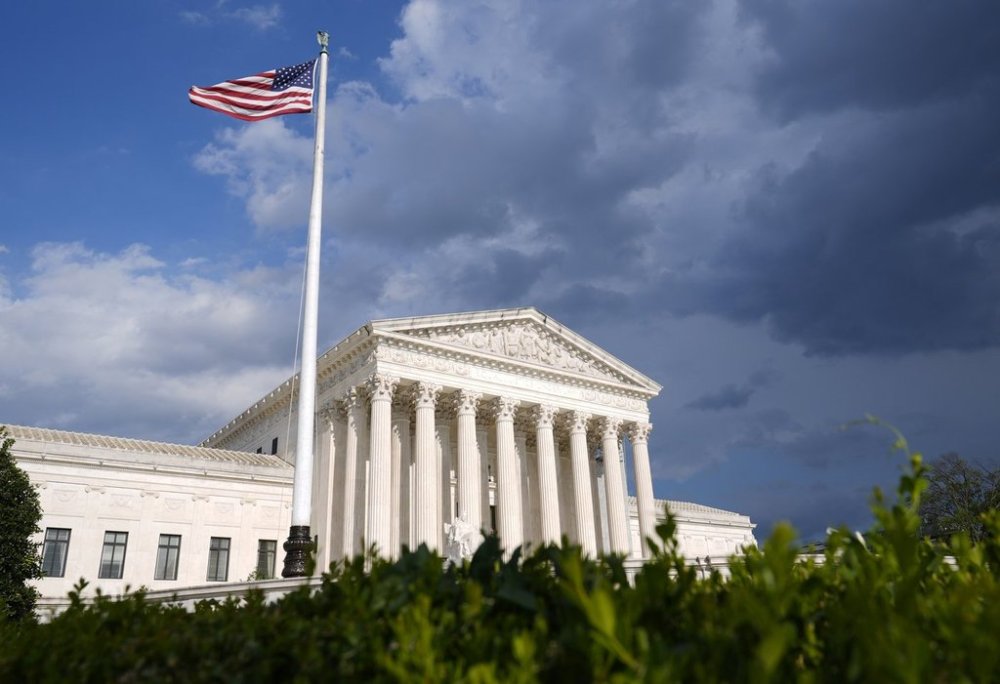Supreme Court seems ready to revive GOP challenge to Illinois mail-in ballot law
Advertisement
Read this article for free:
or
Already have an account? Log in here »
To continue reading, please subscribe:
Monthly Digital Subscription
$1 per week for 24 weeks*
- Enjoy unlimited reading on winnipegfreepress.com
- Read the E-Edition, our digital replica newspaper
- Access News Break, our award-winning app
- Play interactive puzzles
*Billed as $4.00 plus GST every four weeks. After 24 weeks, price increases to the regular rate of $19.00 plus GST every four weeks. Offer available to new and qualified returning subscribers only. Cancel any time.
Monthly Digital Subscription
$4.75/week*
- Enjoy unlimited reading on winnipegfreepress.com
- Read the E-Edition, our digital replica newspaper
- Access News Break, our award-winning app
- Play interactive puzzles
*Billed as $19 plus GST every four weeks. Cancel any time.
To continue reading, please subscribe:
Add Free Press access to your Brandon Sun subscription for only an additional
$1 for the first 4 weeks*
*Your next subscription payment will increase by $1.00 and you will be charged $16.99 plus GST for four weeks. After four weeks, your payment will increase to $23.99 plus GST every four weeks.
Read unlimited articles for free today:
or
Already have an account? Log in here »
WASHINGTON (AP) — The Supreme Court seemed ready Wednesday to revive a Republican challenge to an Illinois law that allows the counting of late-arriving mail ballots, which have been a target of President Donald Trump.
The justices are considering the narrower issue of whether a GOP congressman has the legal right, or standing, to challenge the law that allows ballots postmarked by Election Day to be counted if they are received up to two weeks later.
Lower courts threw out the lawsuit from Rep. Mike Bost, R-Ill., finding those votes likely had little effect on the race in his safe GOP district.

Illinois asked the justices to uphold that ruling, with the state’s solicitor general arguing the case could open the floodgates for more lawsuits and “cause chaos” for election officials.
But the court seemed skeptical about the idea that a candidate’s vote totals should affect their ability to come to court.
“Is there something unseemly about a federal court, in the middle of an election, saying you don’t have standing because you’re going to win or you do have standing because you might lose?” said Supreme Court Justice Neil Gorsuch, who was nominated by Trump.
Chief Justice John Roberts, meanwhile, referred to judges having to make those determinations as a “potential disaster,” and Justice Elena Kagan, who was nominated by then-President Barack Obama, also raised concerns about that kind of test.
The court is expected to rule by June.
Illinois is among 18 states and the District of Columbia that accept mailed ballots received after Election Day as long they are postmarked on or before that date, according to the National Conference of State Legislatures.
The Trump administration also argued that Bost should be able to sue. The Republican president has claimed that late-arriving ballots and drawn-out electoral counts undermine confidence in elections. In March he signed a sweeping executive order on elections that aims to require votes to be “cast and received” by Election Day, though it’s been challenged in court.
The Supreme Court could soon be weighing legal questions about mail-in ballots more directly as Mississippi appeals a 2024 appeals court ruling that found counting ballots that arrive shortly after Election Day violates federal law.

